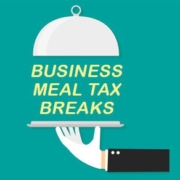Tax Consequences of Owning a Short-Term Rental Property
- Learn about the information you need to report even if you use rental services such as Airbnb, VRBO, and HomeAway.
- Discover the tax rules associated with renting for fewer than 15 days during the year.
- Find out how the 7-day and 30-day rules may affect you.
- Learn the exceptions to the 30-day rule.
- Find out if you may need to report on Schedule C.
Many taxpayers rent out their first or second homes without considering tax consequences. Some of these rules can be beneficial, while others can be very detrimental. If you own a short-term rental, then be aware of some special tax rules that probably apply to you.
Do you rent out your property using rental agents or online rental services that match property owners with prospective renters (such as Airbnb, VRBO or HomeAway)? Then, it is still your responsibility to properly report the rental income and expenses on your tax return.
Special (and sometimes complex) taxation rules can make the rents that you charge tax-free. However, other situations may force you to treat short-term rental income and expenses as a business reported on Schedule C, as opposed to a rental activity reported on Schedule E.
Fiducial has a synopsis of the rules governing short-term rentals.

Rented for fewer than 15 days during the year
When you rent out a property for fewer than 15 days during the tax year, you do not have to report the income. However, you also cannot deduct the expenses associated with the short-term rental. Interest and property taxes are not prorated, and the full amounts of the qualified mortgage interest and property taxes are reported as itemized deductions (as usual) on the taxpayer’s Schedule A.
The 7-day and 30-day rules
Rentals are generally passive activities. This means that losses from these activities are generally only deductible up to the amount of gains from other passive activities. However, we do not treat an activity as a rental if either of these statements applies:
A. The average customer use of the property is for 7 days or fewer—or for 30 days or fewer if the owner (or someone on the owner’s behalf) provides significant personal services.
B. The owner (or someone on the owner’s behalf) provides extraordinary personal services without regard to the property’s average period of customer use.
If you cannot treat the activity as a rental, then you must treat it as a trade or business. Additionally, the income and expenses, including prorated mortgage interest and real property taxes, will be reported on Schedule C. IRS Publication 527 states: “If you provide substantial services that are primarily for your tenant’s convenience, such as regular cleaning, changing linen, or maid service, you report your rental income and expenses on Schedule C.” Substantial services do not include the furnishing of heat and light, the cleaning of public areas, the collecting of trash, or other such general amenities.
Exception to the 30-day rule
If you provide personal services similar to those generally provided in connection with long-term rentals of high-grade commercial or residential real property (such as public area cleaning and trash collection), and if the short-term rental also includes maid and linen services that cost less than 10% of the rental fee, then the personal services are neither significant nor extraordinary for the purposes of the 30-day rule.
Short-term rental profits and losses on Schedule C
Typically, if you own and operate a business that isn’t set up as a corporation, the income and expenses of your business would be reported on Schedule C as part of your income tax return. You would, then, pay self-employment tax (Social Security and Medicare taxes), as well as income tax, on the profit. However, if you have a profit from a rental activity, it is not subject to self-employment tax. This is true even when reported as self-employment income, unless you are a real estate dealer.
If you have a loss from this type of activity, you must still treat it as a passive activity loss unless you meet a material participation test. Generally, this means you would provide 500 or more hours of personal services during the year related to the rental or qualifying as a real estate professional. You may deduct losses from passive activities only up to the passive income amount. However, unused losses may carry forward to future years. A special allowance for real estate rental activities with active participation permits a loss against non-passive income of up to $25,000. This phases out when modified adjusted gross income is between $100K and $150K. However, this allowance does NOT apply when the activity is reported on Schedule C.
What’s next for you and your short-term rental?
These short-term rental rules can be complicated. Call your Fiducial rep to determine how they apply to your particular circumstances. You’ll want to know what actions you can take to minimize tax liability and maximize tax benefits from your rental activities.
Call Fiducial at 1-866-FIDUCIAL or make an appointment at one of our office locations to discuss your situation.
Ready to book an appointment now? Click here. Know someone who might need our services? We love referrals!
For more small business COVID-19 resources, visit Fiducial’s Coronavirus Update Center to find information on SBA loans, tax updates, the Paycheck Protection Program, paid sick and family leave, and more.









